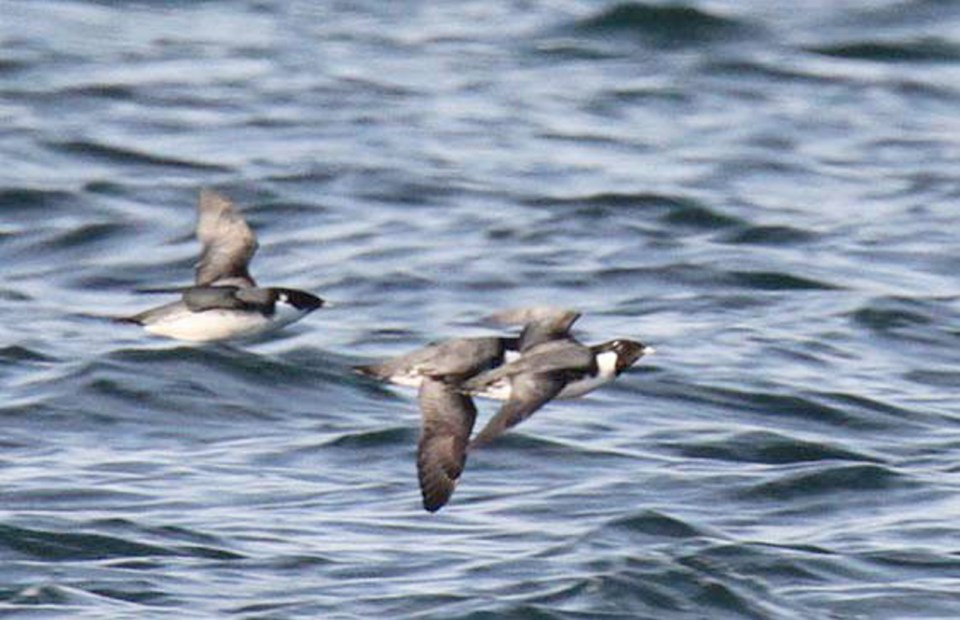VANCOUVER - Researchers at the University of B.C. say the world’s monitored seabird populations have dropped 70 per cent since the 1950s.
Michelle Paleczny, a UBC master’s student and researcher with the Sea Around Us project, says the drop indicates that marine ecosystems are not doing well.
Paleczny and co-authors of the study, published in PLOS ONE, a journal published by the Public Library of Science, compiled information on more than 500 seabird populations from around the world, representing 19 per cent of the global seabird population.
They found overall populations had declined by 69.6 per cent, equivalent to a loss of about 230 million birds in 60 years, according to a UBC news release.
“Seabirds are particularly good indicators of the health of marine ecosystems,” said Paleczny, in a statement. ”When we see this magnitude of seabird decline, we can see there is something wrong with marine ecosystems. It gives us an idea of the overall impact we’re having.”
She said the decline is caused by a variety of factors including overfishing of the fish seabirds rely on for food, birds getting tangled in fishing gear, plastic and oil pollution, introduction of non-native predators to seabird colonies, destruction and changes to seabird habitat, and environmental and ecological changes caused by climate change.
Paleczny said the research found that the albatross population is threatened because they are getting caught on fishing hooks and drowning, a problem that kills hundreds of thousands of seabirds every year.
“Our work demonstrates the strong need for increased seabird conservation effort internationally,” said Paleczny. “Loss of seabirds causes a variety of impacts in coastal and marine ecosystems”
UBC says the study is the first to estimate overall change in available global seabird population data. It is a collaboration between UBC researchers Paleczny, Vasiliki Karpouzi and Daniel Pauly and Edd Hammill, a lecturer at the University of Technology, Sydney in Australia.



